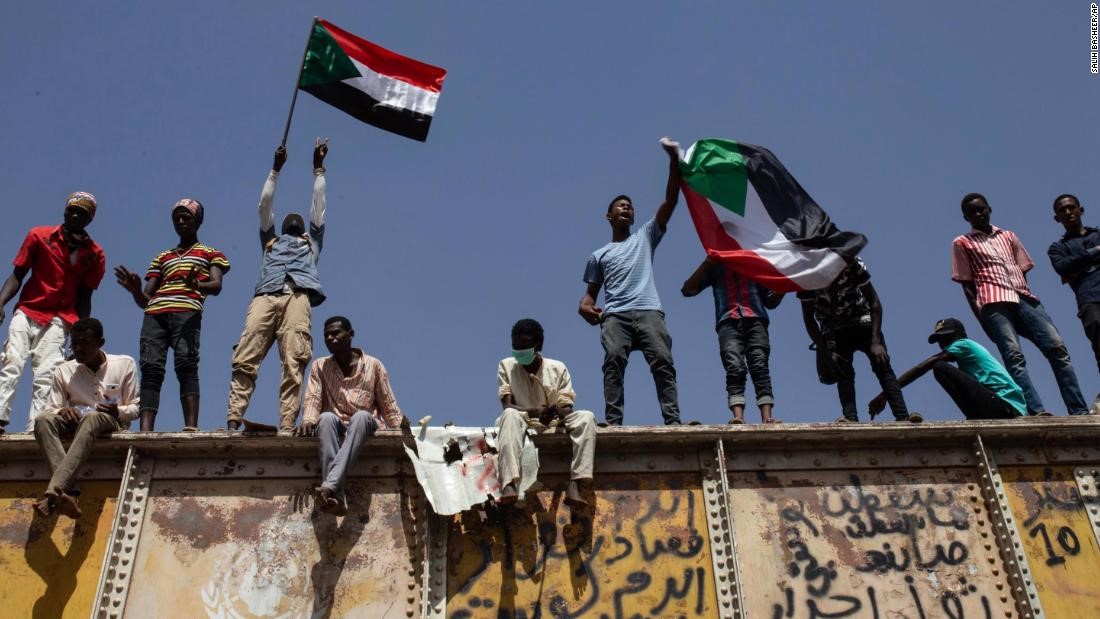Description

Disclaimer: Copyright infringement not intended.
Context
- At least 56 civilians have been killed in Khartoum, the capital of Sudan, since fierce fighting broke out between the country’s army and paramilitary forces.
Details
- Clashes erupted after weeks of heightened tensions between the Rapid Support Forces (RSF), a paramilitary group led by Mohamed Hamdan Dagalo — also known as Hemedti — and the military, headed by Lt Gen Abdel Fattah al-Burhan.
- The two generals disagree over the proposed transition to civilian rule in Sudan.
Who has been in charge in Sudan?
- Sudan began its halting transition towards democracy after military generals removed strongman President Omar al-Bashir amid a popular uprising in April 2019.
- Al-Bashir, long shunned by the West, had presided over the country for nearly 30 years.
- Under an August 2019 agreement, the military agreed to share power with civilians ahead of elections.
- That arrangement was abruptly halted by a coup in October 2021 that triggered new mass pro-democracy rallies across Sudan.
.jpeg)
Where does the balance of power lie?
- The military has been a dominant force in Sudan since its independence in 1956.
- During the 2019-2021 power-sharing arrangement, distrust between it and the civilian parties ran deep.
- The civilian side drew legitimacy from a resilient protest movement and support from parts of the international community.
- The military had backing from rebel factions that benefitted from a 2020 peace deal and from veterans of al-Bashir’s government who returned to the civil service following the coup.
- The coup put the army back in charge but it faced weekly demonstrations, renewed isolation and deepening economic woes.
What are the fault lines?
- A central cause of tension since the uprising is a civilian demand to gain oversight of the military and to see the integration of the powerful RSF into the regular army.
- Civilians have also called for the handover of lucrative military holdings in agriculture, trade and other industries, a crucial source of power for the army.
- Another point of contention is the pursuit of justice over allegations of war crimes by the military and its allies in the conflict in Darfur from 2003.

Status of the economy
- A worsening economic crisis that sent the currency plunging and created frequent shortages of bread and fuel was a key trigger for al-Bashir’s downfall.
- The 2019-2021 transitional government implemented abrupt reforms monitored by the International Monetary Fund in a successful bid for debt relief and to attract foreign financing.
- But billions of dollars in international support and debt relief were frozen after the 2021 coup, halting development projects, straining the national budget and worsening an already dire humanitarian situation.
Regional picture
- Sudan is in a volatile region, bordering the Red Sea, the Sahel and the Horn of Africa.
- Its strategic location and agricultural wealth have attracted regional power plays, complicating the chances of a successful transition.
- Several of Sudan’s neighbours, including Ethiopia, Chad and South Sudan, have been affected by political upheavals and conflict.
- Sudan’s relationship with Ethiopia in particular has been strained over disputed farmland along their border, the conflict in the Tigray region that drove tens of thousands of refugees into Sudan and the Grand Ethiopian Renaissance Dam.
- Egypt, which has deep historical ties with Sudan and a close relationship with its military, has pursued an alternative track with groups that supported the coup.
- Saudi Arabia, the United Arab Emirates, the United Kingdom and the United States form the “Quad”, which has sponsored mediation in Sudan along with the African Union and the United Nations.
- Western powers fear the potential for a Russian base on the Red Sea, which Sudanese military leaders have expressed openness to.
|
PRACTICE QUESTION
Q) The battle between the army and RSF has likely made Sudan’s transition to democracy more difficult. Comment. (150 words)
|

https://indianexpress.com/article/explained/explained-global/why-are-sudans-army-and-paramilitary-forces-fighting-each-other-8559862/













